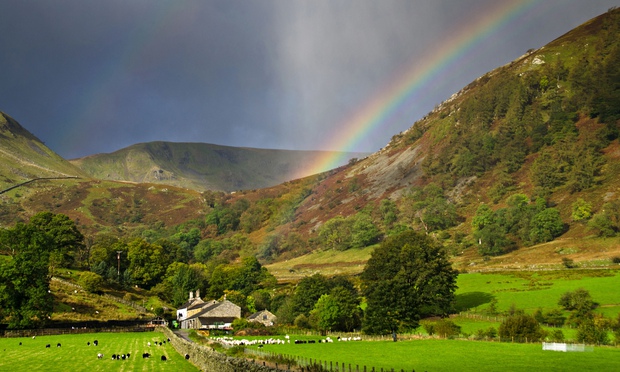
Lake District, Ullswater, Rainbow above the farm.
Environment secretary Liz Truss says rural areas could overtake cities for new business launches over next 10 years.
Andrew Johnson in The Guardian:
The countryside is set to overtake towns and cities as the driving force of Britain’s economy – with superfast broadband leading to a boom in business startups in rural areas, the government has claimed.
Over the next decade, productivity in rural areas could grow faster than in urban areas for the first time since the industrial revolution, according to a report from the Department for Environment, Food and Rural Affairs (Defra).
The environment secretary, Liz Truss, told Radio 4’s Today programme on Saturday: “People are more likely to start up a business in a rural area than in an urban area. There’s a myth out there that innovation happens in cities, that it happens in major towns. In fact, we’re seeing lots of innovation, lots of exports, new technology startups, in rural areas.”
More people are moving to the countryside from towns, than vice versa, and many of those who do move to the country tend to be wealthier and more likely to start up a business, the Defra study found.
Just over a quarter of all businesses – 26% or around 486,000 – are in the countryside and more people start businesses in the country than in major towns, with the exception of cities such as London, according to the report, which notes that current productivity in rural areas is 83% that of urban areas.
The government also estimates that as many as 2 million people are working from home in rural areas thanks to the internet.
The rural population is expected to increase by 6% in the next 10 years, according to the Office of National Statistics.
Truss claimed that more jobs and higher wages in the countryside would reduce the need for people to commute to towns and cities.
“Instead they can spend their time in the town or village they’re based in working,” she told the Today programme. “People are much more likely to work at home and do flexible working in rural areas so they’re using that new technology to work in different ways.”
The government has set a target to get 95% of the UK superfast broadband by 2017, backed by £780m in funding.
